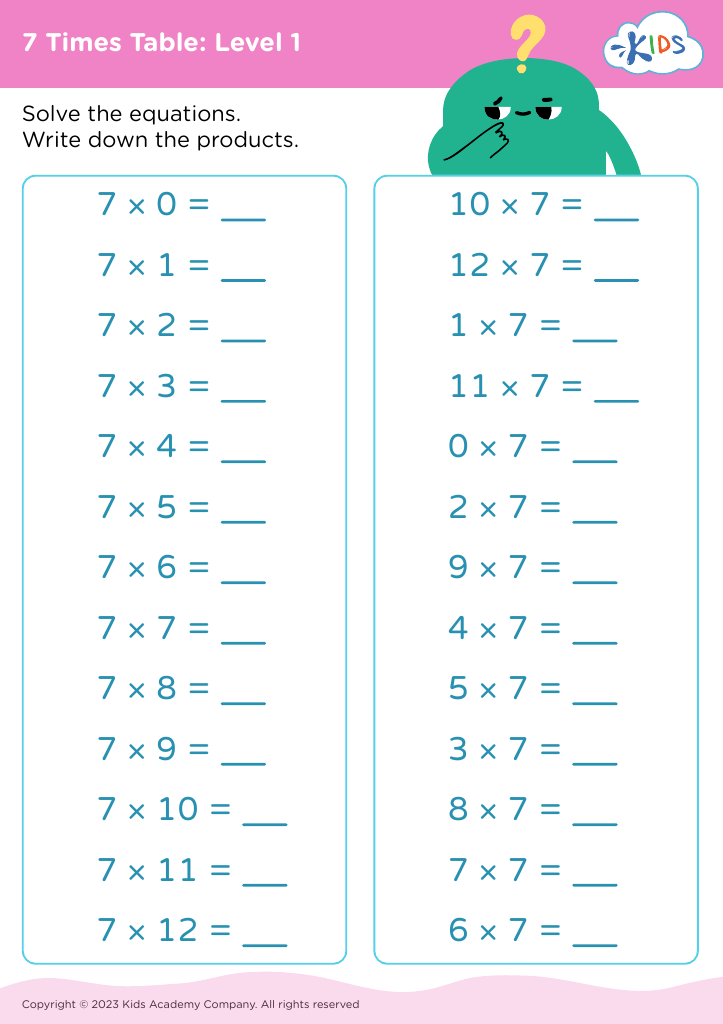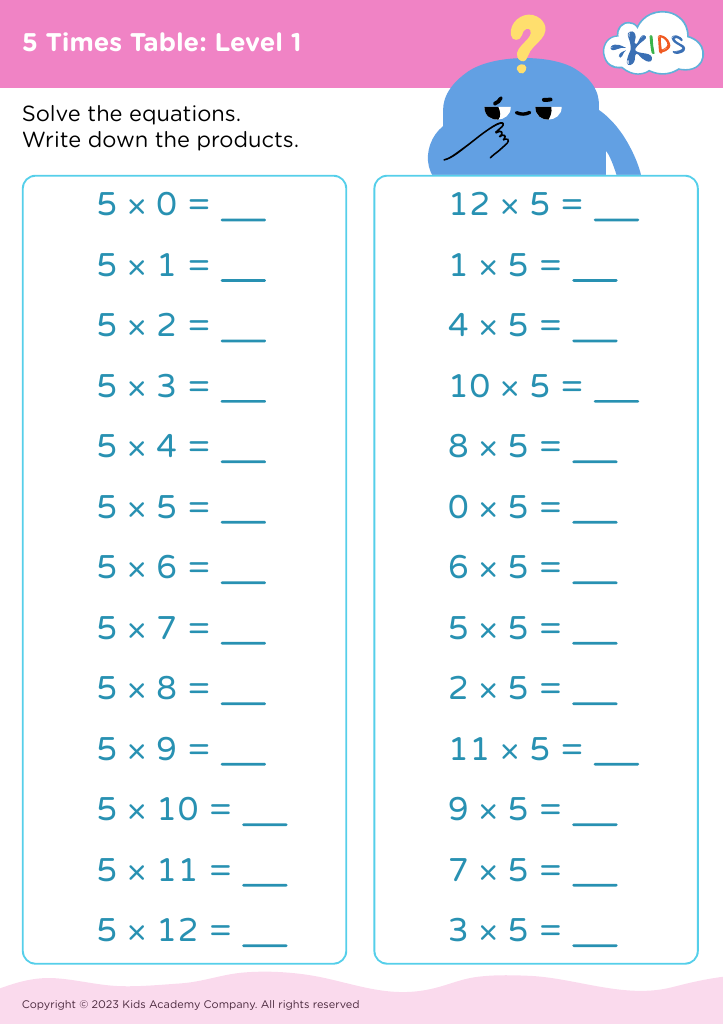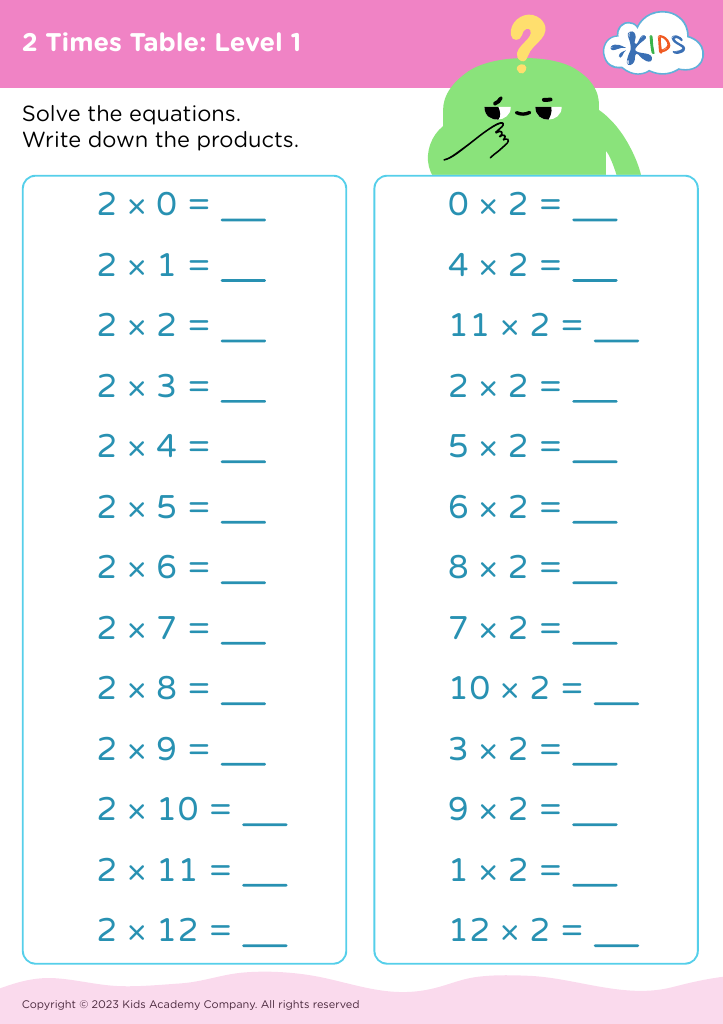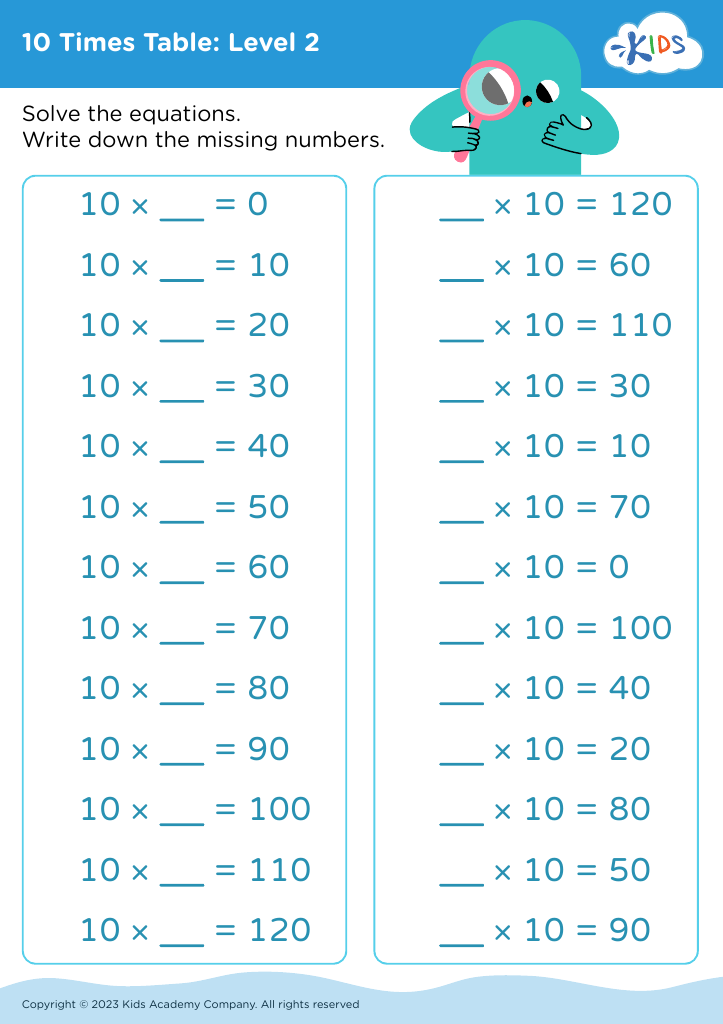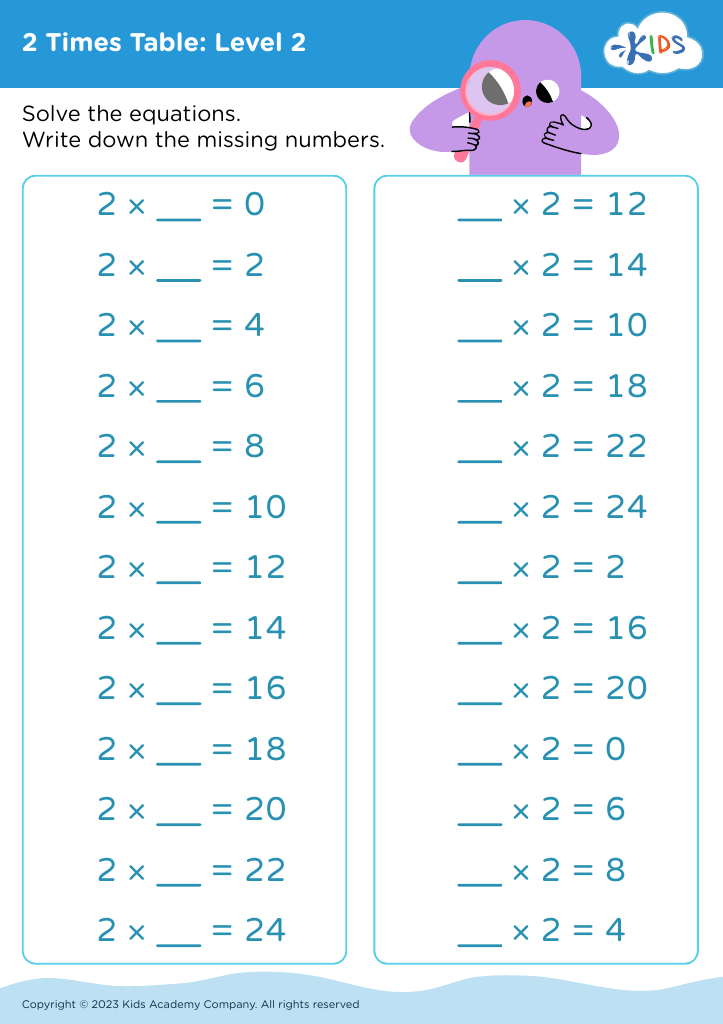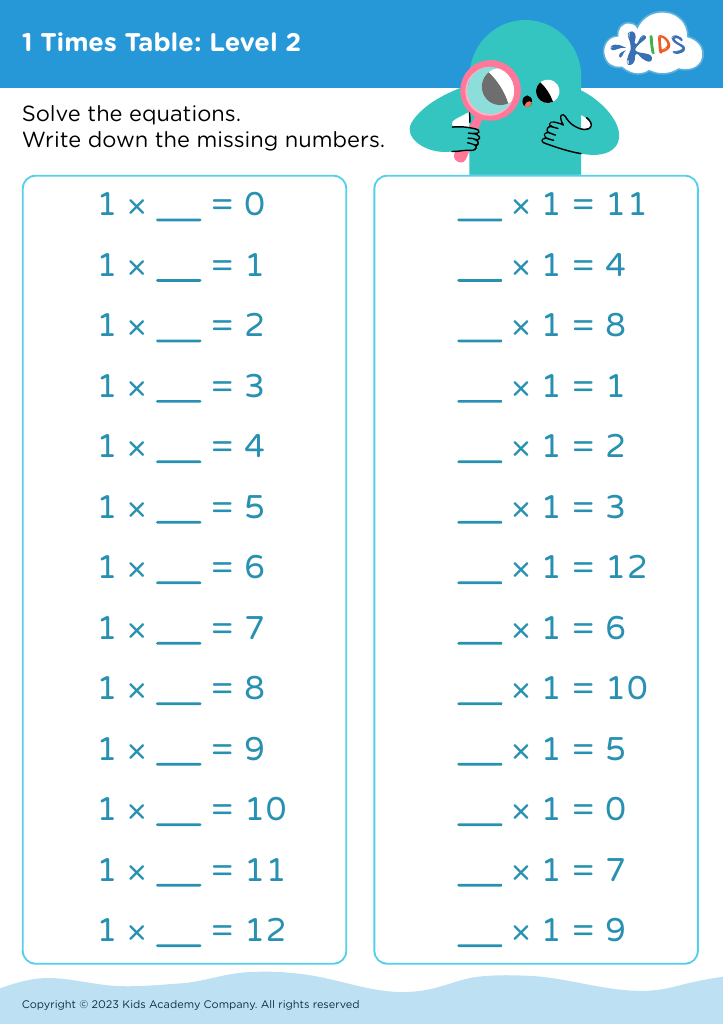Understanding times tables Times Tables Worksheets for Ages 6-9
6 filtered results
-
From - To
Welcome to our dedicated section on “Understanding Times Tables Worksheets for Ages 6-9.” This resourceful page offers engaging, printable worksheets designed to help young learners master multiplication concepts through hands-on practice. Tailored for children aged 6 to 9, our materials provide clear explanations and enjoyable activities that reinforce understanding. By exploring our times tables worksheets, students can confidently build their multiplication skills and develop a strong mathematical foundation. Whether in the classroom or at home, these worksheets make learning multiplication fun and accessible. Start your child's journey toward multiplication mastery today with our comprehensive and interactive worksheets!
Understanding times tables is essential for children aged 6-9 as it lays the foundation for future math skills and overall academic success. Mastery of times tables boosts a child's confidence and enjoyment in mathematics, transforming it from a subject of fear into one of achievement. Beyond memorization, knowing times tables enables critical thinking, problem-solving, and the ability to tackle more complex math concepts such as multiplication, division, fractions, and algebra in later years.
For parents and teachers, fostering a solid grasp of times tables promotes a child's independence in math. When children can easily recall multiplication facts, they can tackle word problems and mathematical operations effectively without relying heavily on calculators or lengthy methods. Furthermore, mastering these fundamentals supports the development of a student’s cognitive skills and enhances their ability to work with patterns, which is integral to mathematical understanding.
Encouraging early familiarity with times tables also allows for a more collaborative learning environment, where parents and teachers can engage in fun, interactive ways to learn—turning a task into a bonding experience. Overall, investing time in understanding times tables equips children with necessary tools for lifelong learning and helps instill a positive relationship with math.
